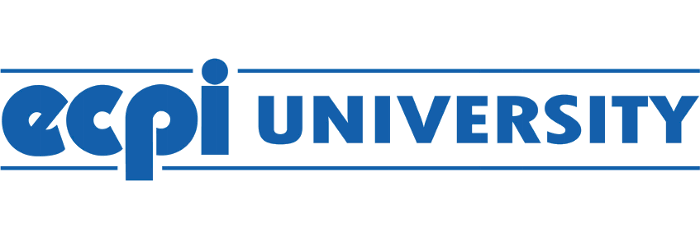What Is a Learning Management System?
Online distance learning comes with a slew of important advantages, all of which are put into place by the learning management system that a school chooses to use. These dynamic platforms make it possible to view your assignments, submit coursework, and even see updated grades in real time. In some cases, you can even communicate with your professors and peers to talk over assignments, ask questions, or get help. Best of all, you can do all of this and more from the comfort of your home.

What Are the Components of a Learning Management System?
A learning management system in education typically comes with several different components that help facilitate distance learning. With that in mind, it's not surprising that online colleges and universities rely on this kind of platform to facilitate their curriculum and development.
The major components of the typical LMS include the following:
Communication and Collaboration: An LMS can facilitate communication between students and instructors by providing forums, chat rooms, and other tools for interaction. Winstead adds that, in addition, many LMS platforms include collaboration tools that allow students to work together on projects or assignments. "These tools can be especially beneficial for distance learners who may not have opportunities to meet in person," says Winstead.
Course Content Management: Winstead says an LMS provides a "central repository" for all course-related materials, making it easy for students to access syllabi, readings, lecture notes, and other resources. "Instructors can also use the LMS to post announcements and assignments, track deadlines, and manage deadlines," he says.
Student Progress Tracking: An LMS can also help educators track student progress and activity in one place. Winstead says that, for example, most LMS platforms include activity logs that show when students log in and what they do while they are logged in. "Some LMS platforms also include quiz and assignment tools that allow instructors to track student performance on specific tasks," notes the expert.
What Is an Example of a Learning Management System?
While there are many benefits of using an LMS in higher education, Winstead says it's incredibly important to note that not all LMS platforms are created equal.
"When choosing an LMS platform for an institution, it is important to consider the specific needs of the institution and its community," Winstead says.
That said, there are several LMS platforms that tend to work well in higher education; thus, they are used by colleges and universities on a regular basis. Common LMS platforms used by institutions of higher education include the following:
Blackboard: This company promises to offer a "holistic ecosystem of EdTech solutions." Currently, Blackboard is used by more than 150 million learners and educators in more than 89 countries.
Canvas: Canvas is another popular LMS that aims to make teaching and learning easier for everyone involved. Founded in 2008, this virtual learning platform has more than 6 million concurrent users worldwide, with 99.9% system uptime.
D2L: Another online learning platform called D2L offers the LMS experience with more personalized learning opportunities included. They currently have clients in K-12 education, higher education, and corporate learning environments.
Moodle: Finally, Moodle is an open source learning platform that aims to power learning environments worldwide. What makes Moodle different is the fact that it's provided open source and entirely free without licensing fees.
What Are the Benefits of a Learning Management System?
Online education has become increasingly popular in recent years, partly due to the pandemic, but also because more and more students seek the flexibility and convenience it offers. Thanks to distance learning, students no longer have to relocate close to their college campus to attend school. They can stay where they're at instead, saving money in college by avoiding a pricey move and by not having to commute to class.
Winstead adds that one of the main advantages is the fact online learning can be accessed from anywhere in the world. For example, students can even complete their coursework in the middle of an international backpacking trip or during a visit to family in another state.
Students can also study at their own pace and in their own time, making it ideal for those with busy schedules — such as those who work full time — as well as students who live in remote areas. The fact that the best online colleges and universities are accredited, including all of those mentioned on OnlineU,also means a degree from these schools will be highly respected in the workplace.
However, there are also downsides of online education too, including an increased chance of "procrastination and distractions," which Winstead says can lead to lower grades.
"Another downside of online education is that it can be difficult to establish personal connections with teachers and classmates," he says. "This can make it harder to stay motivated, particularly when studying independently."
How To Choose a Distance Learning System
Recent estimates from a company called Educause show that nearly 99% of colleges and universities use an LMS to administer their online learning programs. This means selecting an online degree program also means choosing an LMS you'll need to use on a daily basis.
Consider the following steps:
1
Research schools you're interested in to find out what LMS they use. Finding out which LMS a school uses isn't difficult. In fact, you can easily find a school's distance learning portal (and see which LMS they use) by doing an online search for this information.
2
Look for the features you want the most. Compare different school platforms to see which ones have the features you care most about. This could include an online chat function, message boards, online groups or forums, tracking systems for grades, and more.
3
Choose a school and LMS that works for your needs. Finally, remember that distance learning systems offer many of the same features. And since your school could easily change their LMS after you enroll, you should make sure you're happy with the college you select first and foremost.
Still undecided about which school to choose? Check out our article about how to pick the college that's right for you or check out our list of the best online degrees.
Related Articles
2023 Best Online MBA Programs
Explore the best online MBA programs based on alumni salary score, and find the online graduate degree that's right for you.
By OnlineU Staff Writers | 2/3/2023


